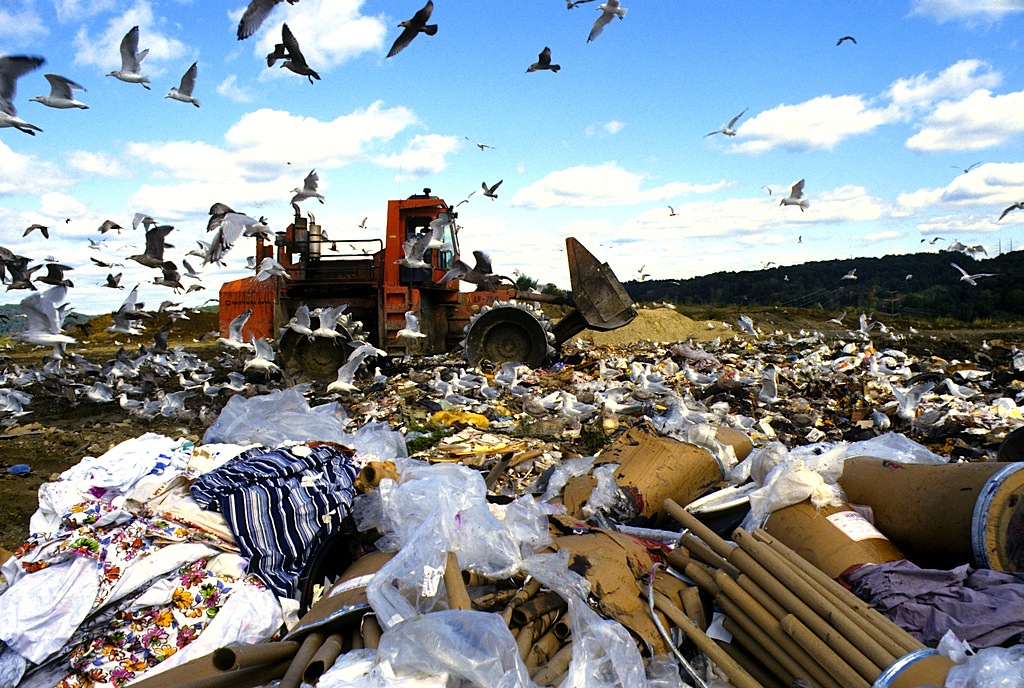Cyprus Waste Management Strategy
The Cypriot policy on waste management is based mainly on waste hierarchy (prevention, reuse, recycling, recovery, disposal) and the correct environmental handling. The ultimate aim is to protect the environment and human health. This is achieved through the reduction/elimination of the negative effects of the generation and management of waste, the promotion of reuse, recycling and recovery and generally the environmentally sound management in order to reduce the disposal in landfills and to reduce the overall impact of the use of resources by improving the efficiency and effectiveness of their use.
The application of environmentally rational management of waste generated in Cyprus is achieved through the implementation of the Waste Law of 2011 (L.185(I)/2011) and the Packaging and Packaging Waste Law of 2002 (L.32(I)/2002) and their amendments, as well as the Regulations and Decrees issued in accordance thereof. The above legislation is the result of European policy and legislation harmonized and adapted to national law.
In the context of the implementation of the Waste Law.185 (j)/2011, the aim of which is the management of waste in order to protect public health and the protection of the environment and of the packaging and packaging waste Law lists the following information for the year 2014.
Municipal Waste Management Plan
In accordance with article 28 of Directive 2008/98/EC (corresponding to article 35 of L.185(I)/2011) on waste, Member States shall establish one or more waste management plans, which define the framework, directions, activities, procedures and measures for the protection of the environment and human health by preventing or reducing the adverse impacts of the generation and management of waste, using the following hierarchy: a) prevention, b) preparation for reuse, c) recycling, d) another type of recovery, e.g. recovery actions, and e) disposal (burial).
In the above context, the Department of Environment has developed the 2012 Management Plan for Household and Similar Type of Waste which, after public consultation (2012) and new political decisions, was changed into the 2015-2021 Municipal Waste Management Plan. At the same time, a summary description of the Municipal Waste Management Plan entitled “Municipal Waste Management Strategy” was prepared for the period 2015-2021. The Strategy and Plan for municipal waste have been developed following wide consultation with all interested parties as well as consultation with the European Commission.
It is noted that Management Plans for the remaining waste streams will follow in order for the Republic of Cyprus to fully comply with this article.
The main axes of the strategy upon which this Plan is based, are compliance with the obligations arising from the European directives on waste management that fall under the municipal waste stream, full utilization of existing private and State waste management infrastructure, maintaining the waste management hierarchy, with emphasis on prevention and separate sorting of waste and the adoption of best practices with the lowest cost.
Within the above context, qualitative and quantitative objectives have been set. Quantitative objectives are (a) 40% separate collection on the total rate of municipal solid waste by the year 2021, with the ultimate target of 50% until 2027 (from 20% in 2012), (b) 50% of recyclable materials (paper, plastic, metal, glass) in municipal waste to be prepared for reuse by 2020, (c) 15% of municipal organic waste to be collected separately by 2021, (d) the amount of biodegradable waste that is promoted for burial, shall not exceed 95,000 tonnes after processing (compared to 459,940 tonnes that were sent for burial in 2011, of which only 57,000 tonnes had been processed at the Koshi Integrated Solid Waste Management (OEDA)) and (e) the achievement of the objectives of the European directives on packaging waste, electrical and electronic equipment waste generated from the residential sector and other sources that are similar in type to those of the domestic sector and waste from household batteries and accumulators.
To achieve the objectives and fulfil the obligations arising from the European Directives, it is imperative to obtain the active involvement of local authorities, the introduction of plans and programmes for the promotion of the separate collection, the reduction of the volume and the recycling of municipal waste. With regard to infrastructure, it is necessary to fully utilize the Koshi and Pentakomo OEDAs, which are under construction, to exploit the infrastructure of private waste management, to complete the green point network and to create of new landfill sites in Nicosia and Paphos, where the processing and creation, where appropriate, of waste transit stations, will take place pursuant to the relevant Directive.
The Plan was adopted in November 2015 by the Council of Ministers.
National Waste Prevention Programmes
In accordance with Article 29 of Directive 2008/98 /EC (corresponding to article 36 of L.185(I)/2011) on waste, Member States (MS) shall establish, in accordance with Articles 1 (Subject matter and scope) and 4 (Waste Hierarchy) of the Directive, waste prevention programmes not later than 12 December 2013. In these programmes, waste streams are selected by MS for which targets are set to prevent their creation. The main objective of these programmes is to take measures and actions aimed at breaking the relationship between economic growth and the environmental impact associated with the generation of waste.
For compliance with the above obligations, the Department of Environment of the Ministry of Agriculture, Rural Development and Environment has prepared an independent waste prevention Programme for the period 2015 – 2021, which contains all the points required by article 29 of the Directive. The Waste Prevention Programme is the first programme to be drafted and has been twice extensively discussed with all stakeholders and the European Commission. This programme (a) establishes quality objectives that focus on changing consumption patterns associated with the generation of waste, limiting the generation of certain waste streams, the promotion of re-use, the reduction of organic waste for burial and reducing the generation of hazardous municipal waste, (b) sets out the waste prevention measures for organic waste streams, paper/cardboard, plastics (plastic bottles, plastic bags, plastic toys), electrical and electronic equipment, hazardous municipal waste, apparel (clothing/fabrics), bulky and excavation waste, construction and demolition waste and (c) sets out the areas in which measures are targeted and are the main generators of waste, i.e. the households, the public sector, agriculture, tourism, construction and the private sector/companies/organizations. The programme also lays down the measures’ control and monitoring instruments as well as an indicative timetable for their implementation.
The Programme was adopted in November 2015 by the Council of Ministers.
The article is taken from www.moa.gov.cy






